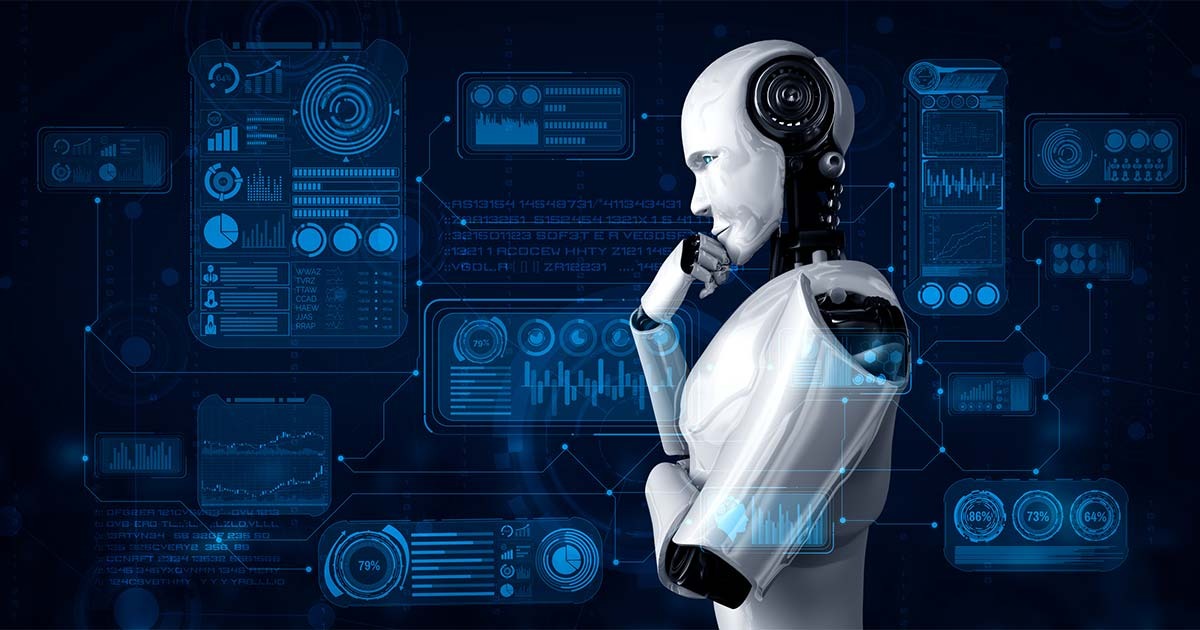In a rapidly evolving digital landscape, artificial intelligence (AI) has emerged as a pivotal technology, drastically transforming the way contact centers operate and interact with customers. From automating mundane tasks to providing insightful data analytics, AI is redefining efficiency and customer satisfaction in the realm of customer service. Companies globally are harnessing the power of AI to stay ahead in delivering exceptional service experiences. Keep reading to discover how AI is revolutionizing the industry and what it means for the future of customer interactions.
The Role of Artificial Intelligence in Revolutionizing Contact Center Operations
Alt text: Two contact center employees with headsets sitting at their desks
The infiltration of AI into contact centers has been nothing short of revolutionary. It encompasses various facets of operations such as call routing, voice recognition, and response times. By implementing AI-driven routing systems, call centers ensure that customers are matched with the most appropriate agent to handle their inquiries, thereby improving the efficiency of interactions.
Artificial intelligence further enhances operations by utilizing natural language processing to comprehend and predict customer requests. This capability not only improves the accuracy of responses but also minimizes the need for human intervention in routine inquiries. With AI, contact centers can handle a higher volume of queries without compromising the quality of service.
Moreover, AI systems are vital in optimizing the workforce management of contact centers. They forecast call volumes and manage staff scheduling accordingly, ensuring that peak times are well-staffed to prevent customer dissatisfaction due to long waiting times. Such intelligent scheduling drastically cuts operational costs while boosting the productivity of the contact center.
Enhancing Customer Service Through AI-Powered Chatbots
AI-powered chatbots are a game-changer in delivering round-the-clock customer service. Essentially, these chatbots are programmed to simulate human conversation, allowing customers to receive immediate assistance at any time of the day. This capability dramatically enhances the customer experience by providing instant responses to common questions.
Unlike human agents, chatbots have the capacity to handle an infinite number of chats simultaneously, ensuring that no customer is left unattended. They are the perfect solution for handling initial customer inquiries, which frees up human agents to tackle more complex issues that require a personalized touch. The symbiotic relationship between chatbots and human agents is the backbone of a modern, efficient contact center.
Leveraging AI for Predictive Analytics in Call Center Management
Alt text: Wide angel of a contact center at the top of a building with multiple desks and windows
Predictive analytics is another outstanding example of AI’s impact on call centers. By analyzing vast amounts of data, AI systems can predict trends and outcomes with remarkable accuracy. These insights empower contact center managers to make informed decisions that boost efficiency and customer satisfaction.
For instance, by predicting the busiest times of the day or year, contact centers can adjust staffing levels accordingly. This proactive approach eliminates excessive wait times and ensures customers are promptly attended to. AI-driven analytics also helps in understanding why certain queries or complaints are frequent, leading to product or service improvements.
Moreover, predictive analytics can facilitate personalized customer experiences. AI can suggest the next best action for agents to take, based on historical data, to resolve issues expeditiously or to cross-sell and upsell services effectively. Such personalized touches contribute immensely to enhancing customer loyalty and the overall brand reputation.
Impact of AI on Employee Productivity and Satisfaction in Contact Centers
AI has an undeniable effect on employees’ productivity and job satisfaction within contact centers. Automation of repetitive tasks frees agents from monotonous work, allowing them to focus on more engaging and rewarding activities. This shift not only improves productivity but also enhances job satisfaction and reduces employee turnover.
AI-driven tools equip agents with real-time information and guidance, which bolsters their confidence and effectiveness in dealing with customer inquiries. With AI-assisted operations, agents can deliver high-quality service more consistently, leading to personal gratification and professional development.
Nonetheless, the introduction of AI into the workplace must be handled with care. Ensuring that employees are trained to work alongside AI is crucial for a smooth transition. In addition, involving employees in the deployment process can alleviate concerns and foster a culture of innovation and acceptance.
Overall, AI is a transformative force in the contact center industry, bringing unparalleled improvements to efficiency, customer service, and employee satisfaction. As technology advances, we can only anticipate even greater enhancements, with AI being central to the way contact centers operate and engage with customers. The potential of AI is vast, and the positive impacts on both the customer experience and the industry’s workforce are significant, provided privacy and security considerations are diligently managed.
